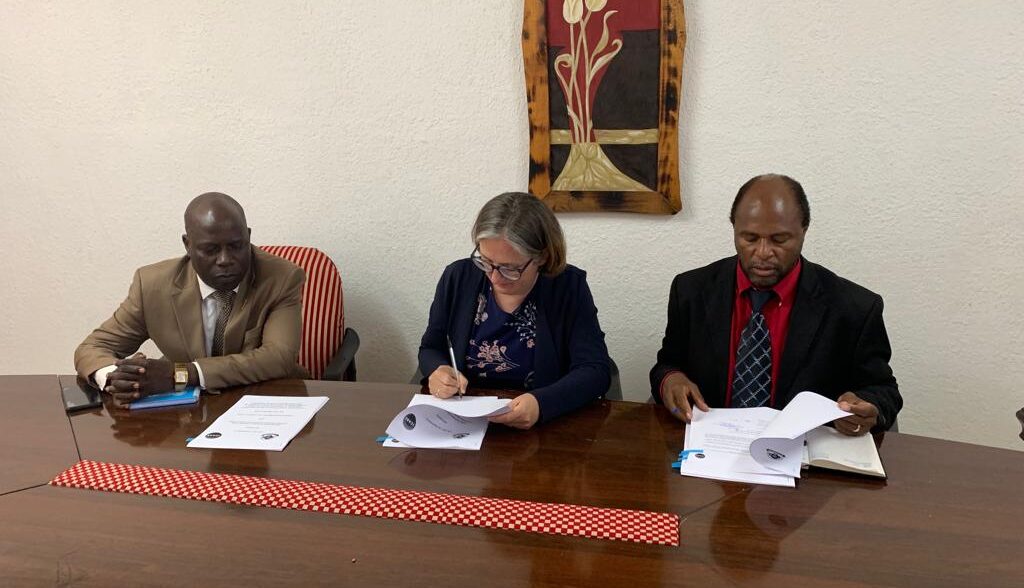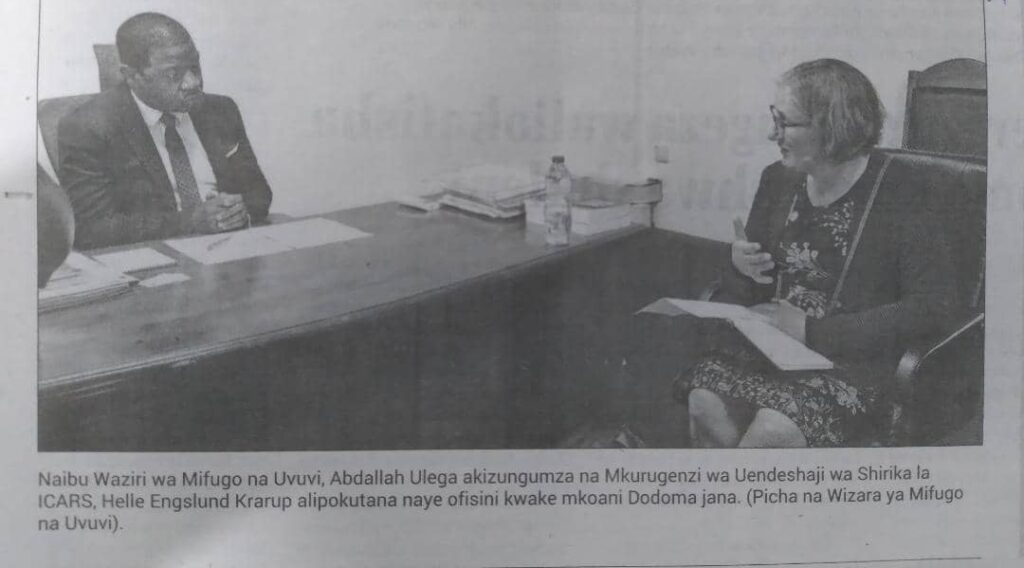On 5 April 2022, the ICARS team met with representatives from the Ministry of Livestock and Fisheries, who shared a letter of commitment to support two demonstration projects in Tanzania, one in the animal and one in the environment sector.
The Ministry will support the two projects throughout their duration, supporting scientific and oversight activities, as well as supporting the future scale up. The projects will be implemented by Sokoine University of Agriculture (SUA), in Morogoro Tanzania, and two grant agreements between ICARS and SUA were also signed at this meeting to solidify this collaboration. The projects, which will begin on 1 May, were personally supported by the Deputy Minister of Livestock and Fisheries in Tanzania, the Honorable Abdallah Ulega, as well as the Permanent Secretary, Tixon Tuyangine Nzunda, at the Ministry of Livestock and Fisheries.


Project summaries
Commercial poultry production in Tanzania has an annual growth rate of 6.4% in response to increased demand for eggs and broiler meat. Intensified poultry production comes with increased risk for poultry diseases if proper preventive and control measures are not instituted. To address this challenge, this project seeks to generate evidence at the farm level of how to optimize and increase uptake of vaccine regimes and biosecurity interventions that are both available and relevant, with an economic case for sustainable investment.
Mitigating the spread of antimicrobials and resistant microbes through treatment of manure
Poultry manure is a desirable fertiliser and is used in crop production, aquaculture, and other food production, which could lead to increased environmental contamination with antimicrobial residues and antimicrobial resistant pathogens and genes across the food chain. This is because antibiotics are often overused in the poultry sector but may not be fully metabolised by poultry and therefore manure can pose risk. This project intends to introduce manure processing technology that will aid in treating manure in Tanzania, leading to safer fertiliser for organic and non-organic products, and ultimately safer food products. It is expected to have an added benefit of creating employment opportunities for small businesses for manure composting and fertiliser sales.
Early conversations between ICARS and Zanzibar

Both demonstration projects in Tanzania intend to include study sites on Zanzibar to represent the unique context, and the Zanzibar Livestock Research Institute (ZALIRI), is already a partner on the above two demonstration projects. However, there are other potential avenues of collaboration, and over the weekend, the ICARS teams met with stakeholders in Zanzibar to explore additional possible collaborative activities in the coming year. The positive meeting with Acting Principal Secretary of Ministry of Agriculture, Irrigation, Natural Resources and Livestock, Haji Hamid Saleh and individuals from ZALIRI have laid the foundations for a productive co-development process to identify new AMR solutions in the region.

